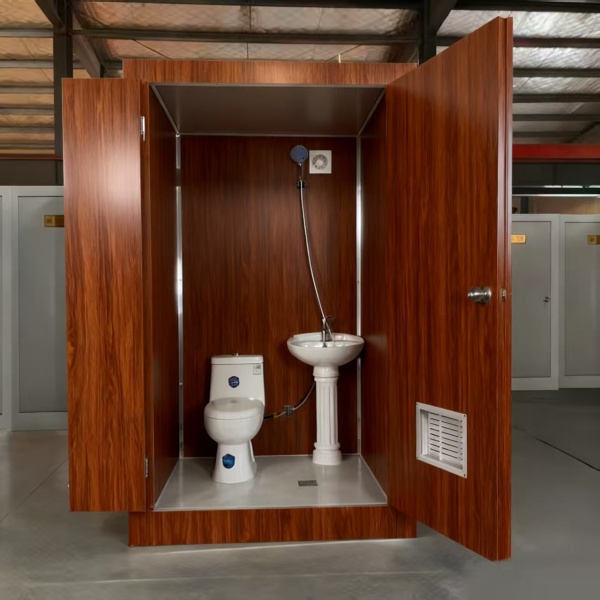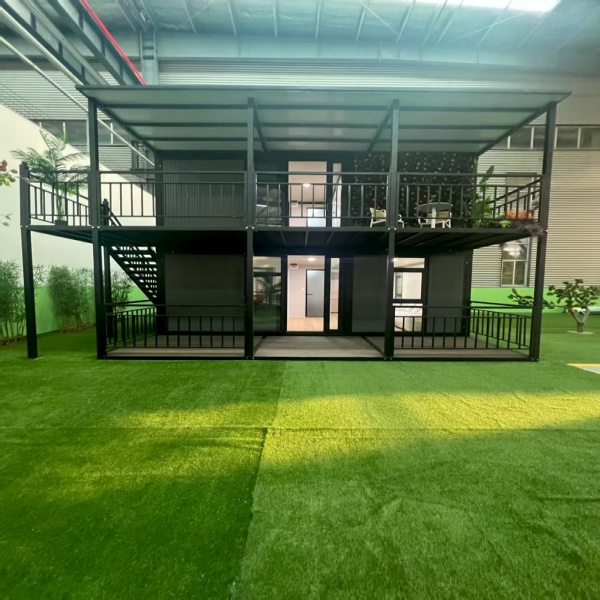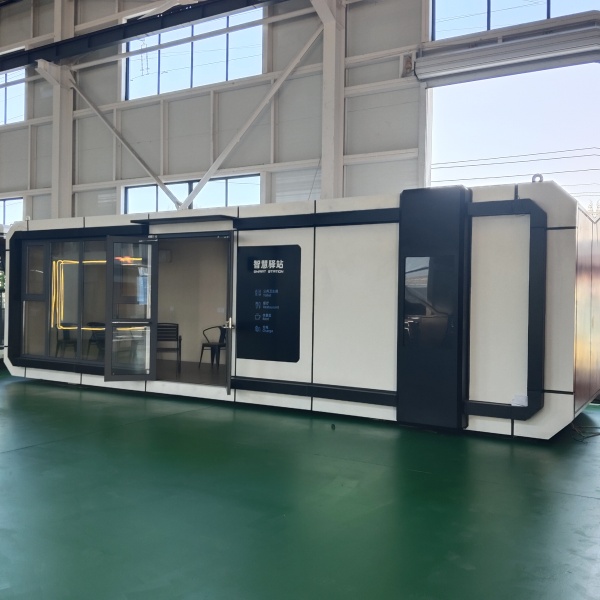-
E-mail
Austin120521@outlook.com -
E-mail
sales@jujiuhouse.com -
Telephone
+86-17864099991 -
Telephone
+86-17854044442
- Chinese
- French
- German
- Portuguese
- Spanish
- Russian
- Japanese
- Korean
- Arabic
- Irish
- Greek
- Turkish
- Italian
- Danish
- Romanian
- Indonesian
- Czech
- Afrikaans
- Swedish
- Polish
- Basque
- Catalan
- Esperanto
- Hindi
- Lao
- Albanian
- Amharic
- Armenian
- Azerbaijani
- Belarusian
- Bengali
- Bosnian
- Bulgarian
- Cebuano
- Chichewa
- Corsican
- Croatian
- Dutch
- Estonian
- Filipino
- Finnish
- Frisian
- Galician
- Georgian
- Gujarati
- Haitian
- Hausa
- Hawaiian
- Hebrew
- Hmong
- Hungarian
- Icelandic
- Igbo
- Javanese
- Kannada
- Kazakh
- Khmer
- Kurdish
- Kyrgyz
- Latin
- Latvian
- Lithuanian
- Luxembou..
- Macedonian
- Malagasy
- Malay
- Malayalam
- Maltese
- Maori
- Marathi
- Mongolian
- Burmese
- Nepali
- Norwegian
- Pashto
- Persian
- Punjabi
- Serbian
- Sesotho
- Sinhala
- Slovak
- Slovenian
- Somali
- Samoan
- Scots Gaelic
- Shona
- Sindhi
- Sundanese
- Swahili
- Tajik
- Tamil
- Telugu
- Thai
- Ukrainian
- Urdu
- Uzbek
- Vietnamese
- Welsh
- Xhosa
- Yiddish
- Yoruba
- Zulu
- Kinyarwanda
- Tatar
- Oriya
- Turkmen
- Uyghur

container house expandable
Rethinking Space: The Marvel of Expandable Container Houses
Expandable container houses are shifting our perception of space, offering more than just a living area. These structures redefine efficiency and versatility, but are they as revolutionary as some claim? We delve into this evolving concept, guided by practical expertise and real-world applications.
The Rise of Expandable Container Houses
The concept of expandable container houses is not new, but their rise in popularity is significant. As more people look for sustainable and affordable living solutions, the practicality of containers becomes evident. I’ve seen projects where space was a key limitation, and containers provided an immediate solution because of their inherent ability to transform.
In the field, I've often encountered both skepticism and enthusiasm. It’s a balanced debate: the initial idea seems straightforward—take a container, modify it, expand it. However, achieving functionality and aesthetics requires attention to engineering details. Shandong Jujiu Integrated Housing Co., Ltd., for instance, showcases the intricate process of design and optimization of container houses, providing insights into what it takes to get from concept to reality.
One misstep I've observed is disregarding local climate conditions. An expandable container must be insulated properly; otherwise, it turns into an oven or a freezer. The materials used by companies like Jujiu play a crucial role in adaptation to different environments.
Customization and Flexibility
A major advantage of expandable container houses is customization. Recently, I worked with a client who needed a small office space with options to expand quickly for team meetings. The flexibility of containers allowed us to add modular segments efficiently.
This flexibility does come with challenges. Integrating utilities—plumbing, electricity—into such a dynamic structure is not always seamless. Experienced engineers at Jujiu understand this well, often designing with such expansions in mind from the outset, which simplifies integration later.
Another factor is the aesthetic appeal. Containers have a utilitarian origin, but transforming them into cozy, attractive spaces is an art. Designers at Shandong Jujiu integrate natural materials and clever lighting solutions to create inviting spaces that defy their industrial roots.
Challenges in Urban Settings
Installing expandable container houses in urban settings involves navigating regulations and spatial constraints. I recall an instance where site accessibility was a major hurdle. Transportation and assembly require precision not typical of traditional construction methods.
Furthermore, urban landscapes impose restrictions on what can be done architecturally. Innovative designs from Jujiu often feature retractable walls and foldable elements, maximizing space efficiency while adhering to local codes.
The ability to relocate these homes easily is another misunderstood aspect. Despite their mobility, moving a container isn’t a trivial task. A comprehensive plan must include transportation permits, site preparation, and reinstatement of utilities.
Sustainability and Environmental Impact
Sustainability is a significant selling point for expandable container houses. Reusing old shipping containers reduces waste, but there’s more to it. The materials used for expansion, like insulation panels, must also be eco-friendly.
In collaboration with Shandong Jujiu, I’ve worked on projects where sustainability was a priority. The choice of solar panels, water recycling systems, and green roofs has been crucial in reducing the environmental footprint.
However, the sourcing of containers also matters. Containers that have transported hazardous materials are unsuitable for housing, a detail often overlooked by newcomers in the field. It’s an area where Jujiu’s expertise can steer projects towards safer, more sustainable choices.
The Future of Compact Living
The future of expandable container houses seems promising. I believe we’ll see more innovation in this space, particularly in automation and smart home integration. How homes react to usage patterns or environmental changes is a frontier yet to be fully explored.
Yet, reality checks remain essential. The hype around containers sometimes overlooks practical issues, like financial viability for large-scale developments. These discussions often come up in professional circles with colleagues from Jujiu, considering the balance between innovation and practicality.
Ultimately, Shandong Jujiu Integrated Housing Co., Ltd. exemplifies the potential found within this growing industry. Their approach integrates function and form, addressing both immediate needs and future possibilities. This delicate balance might just be what propels expandable container houses from a niche market to mainstream viability.
Related products
Related products
Best selling products
Best selling products-
 High-quality Double-wing Folding Container House with Doors and Windows, Insulated Walls, Suitable for Various Scenarios.
High-quality Double-wing Folding Container House with Doors and Windows, Insulated Walls, Suitable for Various Scenarios. -
 Factory Direct Sales Office Folding Container Luxury House Living Container House
Factory Direct Sales Office Folding Container Luxury House Living Container House -
 A container house with a terrace and double-wing folding design, suitable for various purposes such as offices, meeting rooms, living rooms, etc.
A container house with a terrace and double-wing folding design, suitable for various purposes such as offices, meeting rooms, living rooms, etc. -
 Luxury Foldable Two Story Container House for Glamping Resort and Villa Hotel
Luxury Foldable Two Story Container House for Glamping Resort and Villa Hotel -
 Hot-selling foldable container houses, expandable prefabricated houses, suitable for office or living use, with fast delivery.
Hot-selling foldable container houses, expandable prefabricated houses, suitable for office or living use, with fast delivery. -
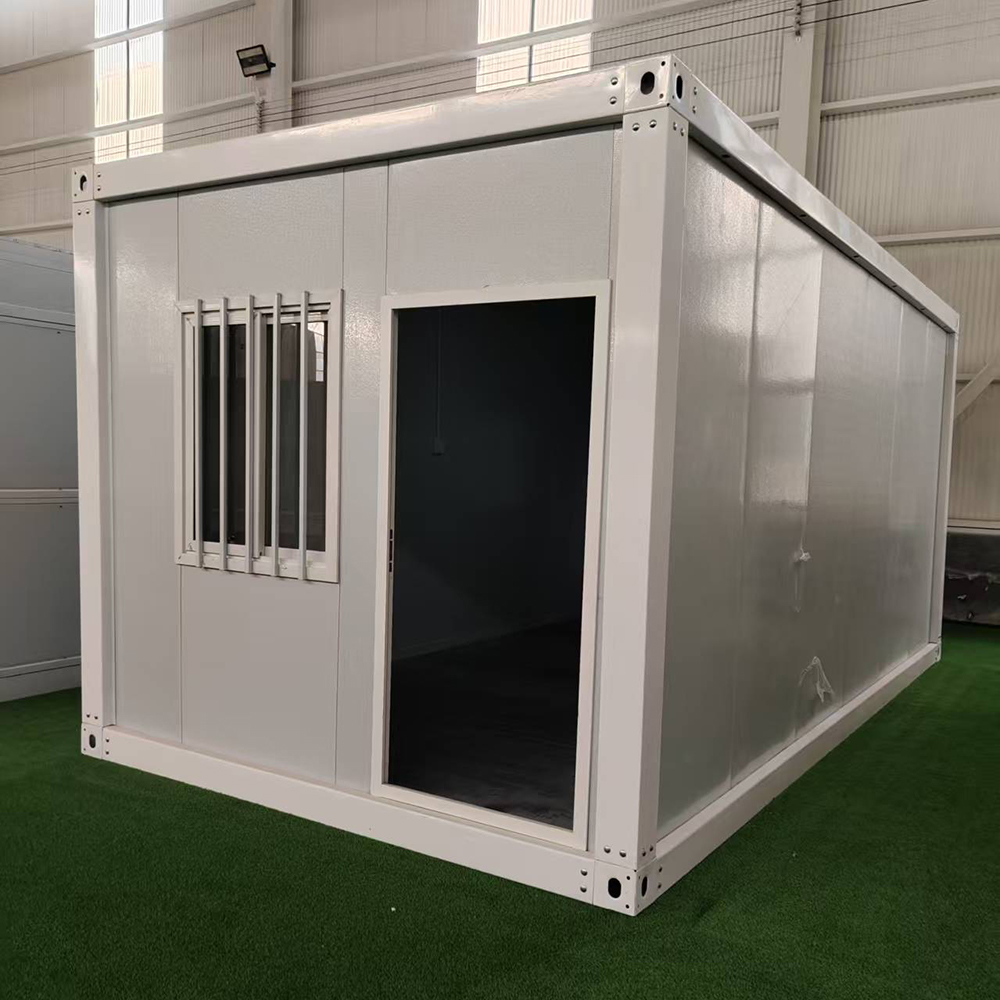 Folding Container Moving House Modular Office Container House Prefab Container for Outdoor Use
Folding Container Moving House Modular Office Container House Prefab Container for Outdoor Use -
 Detachable Design Prefabricated Container House Portable Modular Office Building Folding Container House
Detachable Design Prefabricated Container House Portable Modular Office Building Folding Container House -
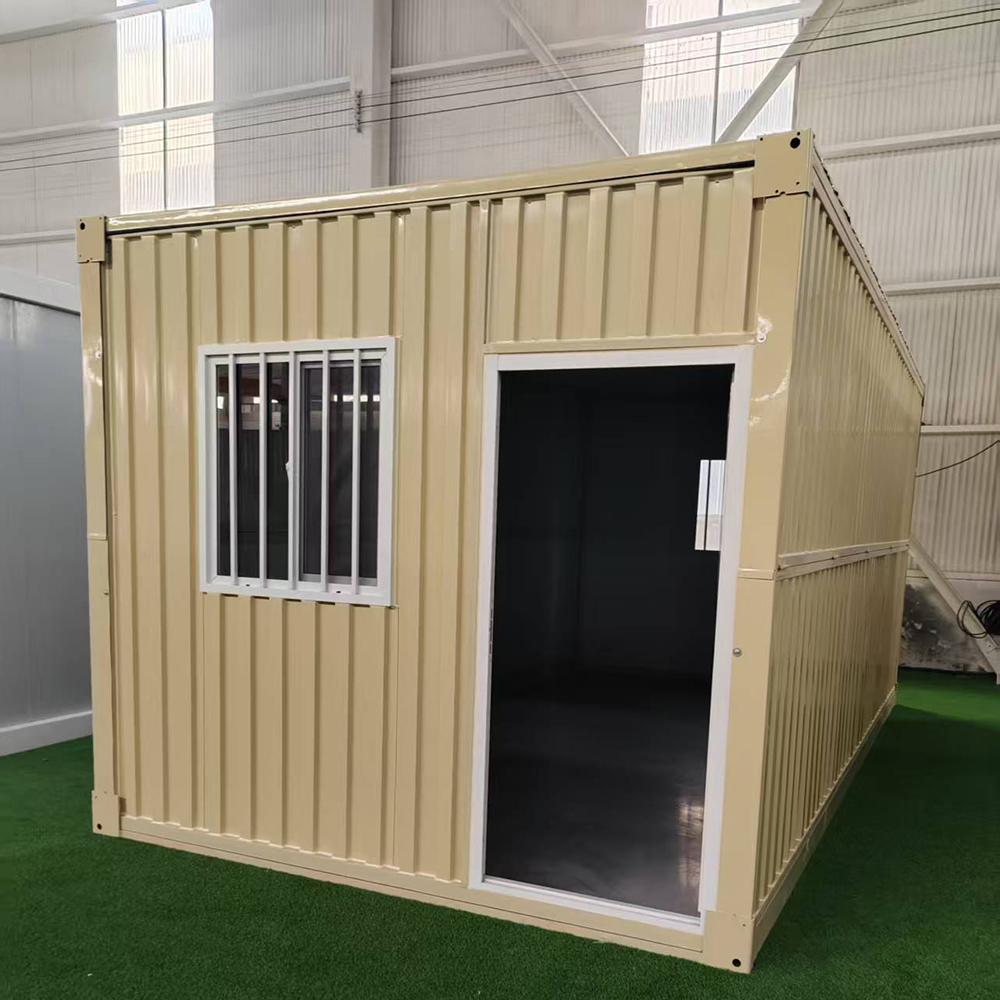 Competitive Price Portable Container House Foldable Container Mobile Living Modular Homes
Competitive Price Portable Container House Foldable Container Mobile Living Modular Homes -
 The foldable container house with side wing design can be quickly set up and is suitable for various environments.
The foldable container house with side wing design can be quickly set up and is suitable for various environments. -
 A container house with a terrace and double-wing folding design, suitable for various purposes such as offices, meeting rooms, living rooms, etc.
A container house with a terrace and double-wing folding design, suitable for various purposes such as offices, meeting rooms, living rooms, etc. -
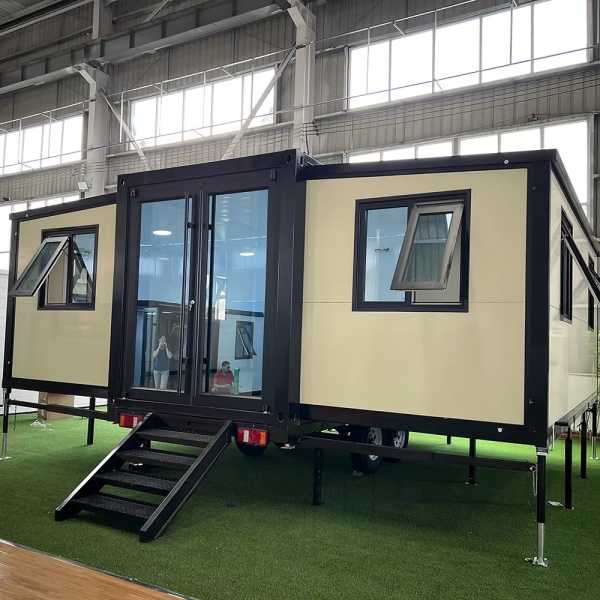 Stair Access Double Wing Expandable Container House | Easy Installation Mobile Office
Stair Access Double Wing Expandable Container House | Easy Installation Mobile Office -
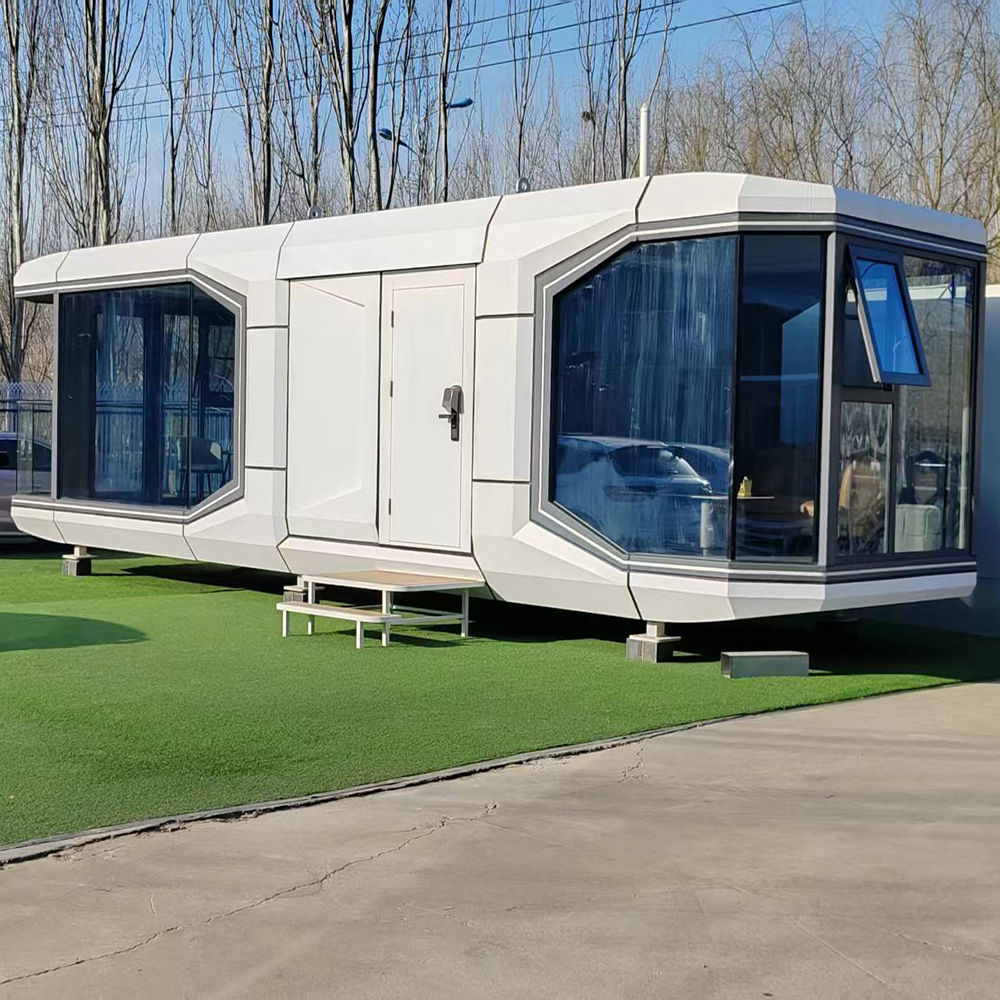 Luxury High Quality 2 Bedroom Container Home Prefabricated Steel Space Capsule for Office Shop Hotel or Outdoor House
Luxury High Quality 2 Bedroom Container Home Prefabricated Steel Space Capsule for Office Shop Hotel or Outdoor House









